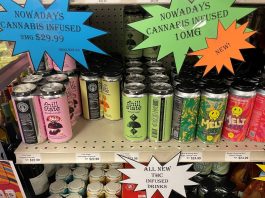Katie Stancombe for www.theindianalawyer.com
An award of damages has been upheld for a woman who alleged negligence against a Golden Corral restaurant after she consumed undercooked chicken wings from its buffet that resulted in food poisoning and injuries requiring multiple surgeries.
While eating lunch with her family at a Clarksville Golden Corral restaurant, Kristina Lenart ate numerous barbeque chicken wings from the restaurant’s buffet line. Halfway through the meal, however, Lenart’s husband noticed that a chicken wing his daughter had selected was “blood raw.â€
After he demanded an explanation from the manager, the family received a refund and left. About two hours later, Lenart suddenly experienced diarrhea and intense vomiting. After more than a week, Lenart was still unable to keep food down and was experiencing abdominal pain, nausea, and vomiting. She was referred to board-certified general surgeon Julie Hutchinson, who was required to perform surgery on Lenart upon discovery of an umbilical hernia.
Two additional surgeries were required after Lenart’s pain continued, and Hutchinson predicted that Lenart might require additional surgeries in the future. The chicken wings Lenart consumed, were supposed to be cooked at 350 degrees Fahrenheit for a specified time, according to Golden Corral buffet procedures. However, the temperature logs for the buffets on the day Lenart dined there were not preserved after their 90-day extension period had expired.
Lenart sued Golden Corral claiming negligence, alleging it failed to prepare and serve its barbeque chicken wings in a manner safe for human consumption and that as a result of eating such chicken wings, she sustained injuries and damages.
A jury ultimately returned a verdict in Lenart’s favor, awarding her $240,000 in damages. Golden Corral appealed, arguing the trial court abused its discretion, but the Indiana Court of Appeals rejected all of its assertions in Golden Corral Corporation v. Kristina M. Lenart, 18A-CT-704.
First, the appellate court denied the assertion that Hutchison should not have testified on Lenart’s behalf because the scientific methodology she used was not reliable and thus, did not meet the admissibility requirements of Evidence Rule 702.
The COA found that claim was waived because Golden Corral did not object at trial to Hutchinson’s direct or rebuttal testimony on those grounds. Waiver notwithstanding, the appellate court was unpersuaded by Golden Corral’s argument that Hutchinson’s expert opinion was faulty because she did not rule out all other possible causes for Lenart’s sickness, and because Lenart reported being sick two hours after eating the food.
It further found issue with Golden Corral’s argument that Lenart’s entire case was based on circumstantial evidence between the timing of her lunch and the manifestation of her symptoms, which the restaurant asserted amounted to nothing more than speculation.
“Dr. Hutchinson testified via video deposition that she engaged in a differential diagnosis and that based on information provided by Lenart, Lenart’s medical history, as well as her own medical training and experience, she was of the opinion that Lenart contracted one of a couple food pathogens having an incubation period consistent with the timeframe between when Lenart consumed the barbeque chicken wings and when she became sick,†Judge Robert Altice Jr. wrote for the panel.
“Dr. Hutchinson acknowledged that there was no way to definitively know what foodborne pathogen Lenart was exposed to but opined that her opinion was reasonable and appropriate given the available information,†the panel concluded, finding Lenart presented sufficient evidence as to the element of proximate cause.
Additionally, it found no abuse of discretion in allowing the jury to be informed on spoliation and the doctrine of res ipsa loquitur. Specifically, that if Golden Corral failed to produce documents listing the temperature logs for the chicken wings consumed by Lenart, then the jury could conclude those documents would have been unfavorable to Golden Corral’s case.
“Under these circumstances, Golden Corral had a duty to maintain such records,†Altice continued. “Because Golden Corral destroyed the buffet temperature logs despite its knowledge and duty, the spoliation instruction was warranted.â€
It similarly found Lenart presented sufficient evidence on the res ipsa loquitur claim. Lastly, the appellate court concluded that at the end of the cooking process, the chicken wing was still a chicken wing. Thus, the cooking process did not substantially alter the chicken wing or create a new product and Lenart’s action was not controlled by the Indiana Products Liability Act.



